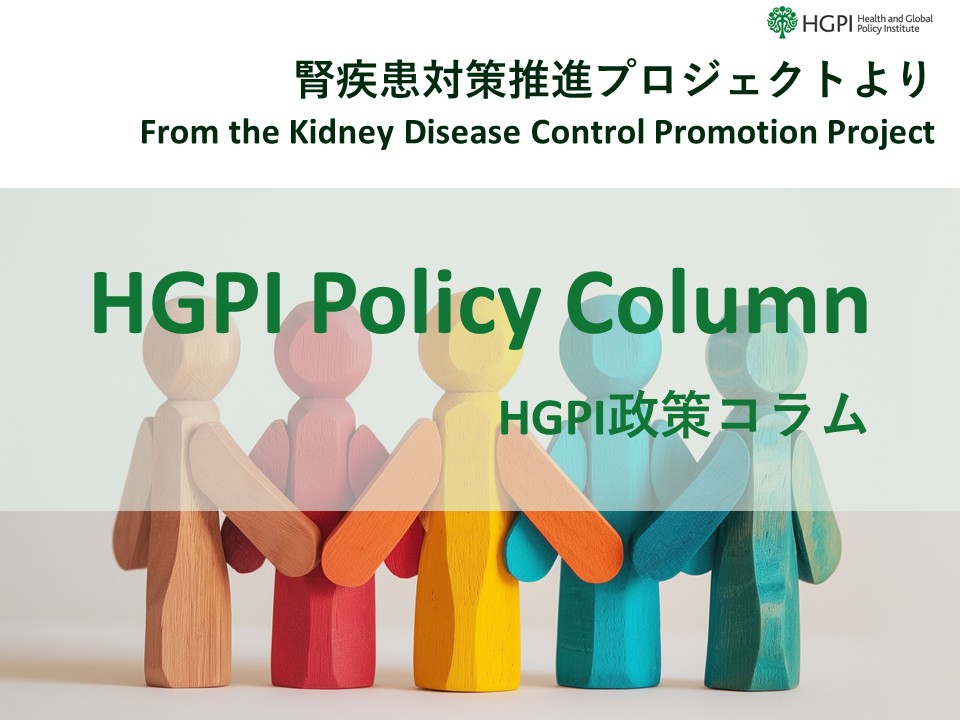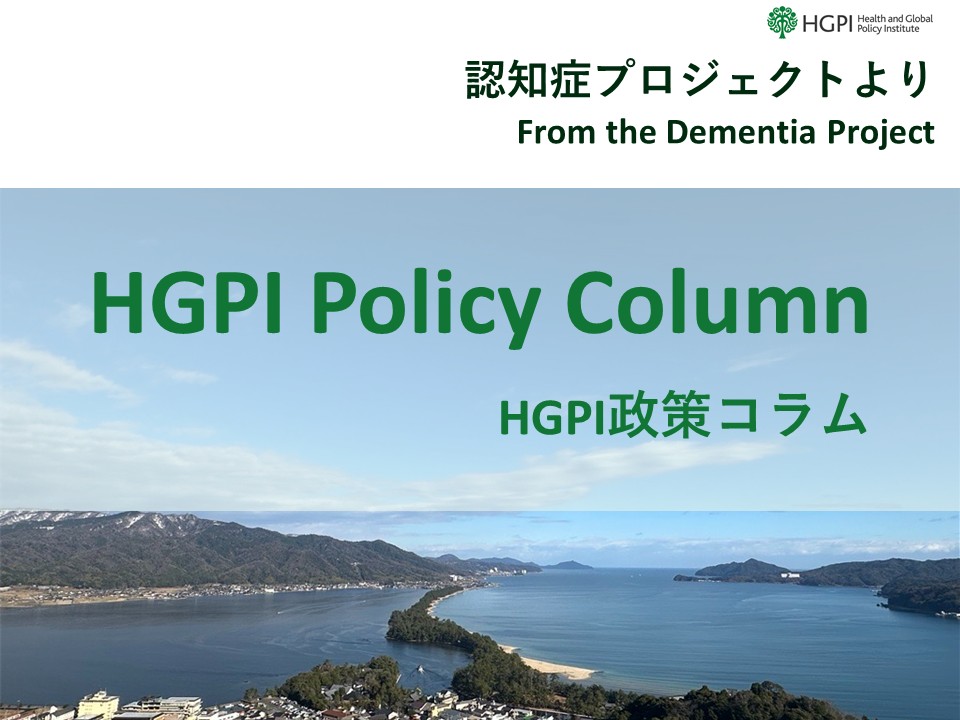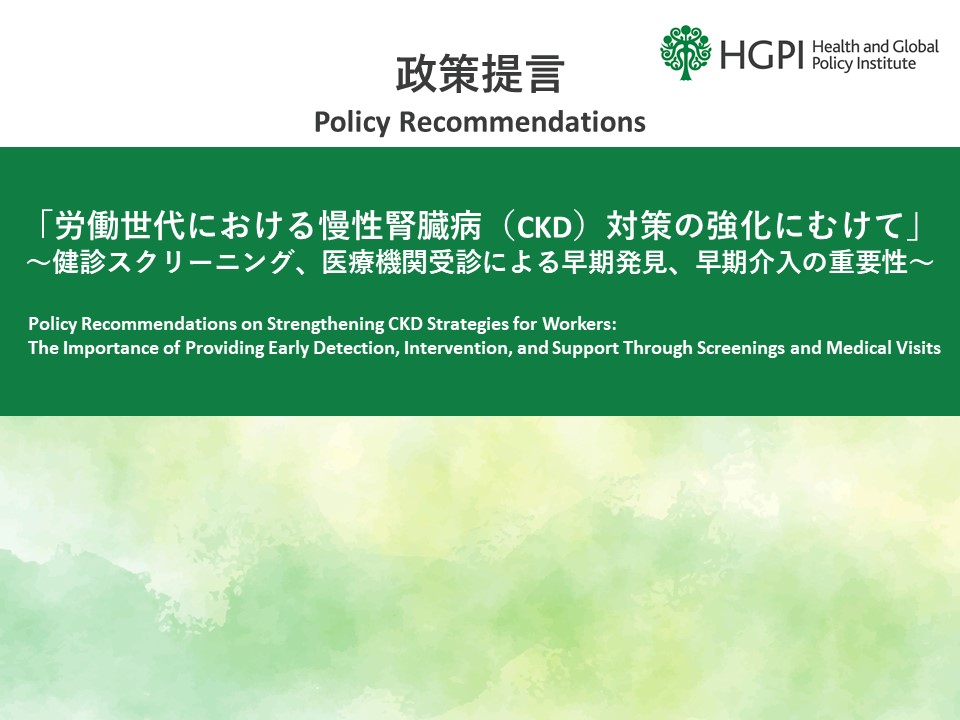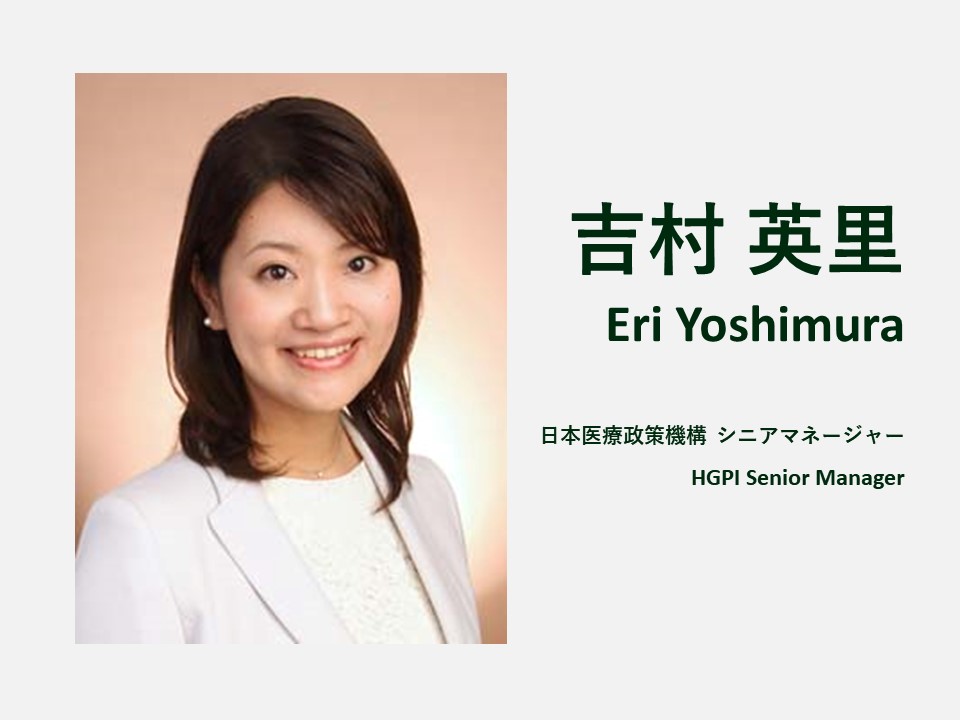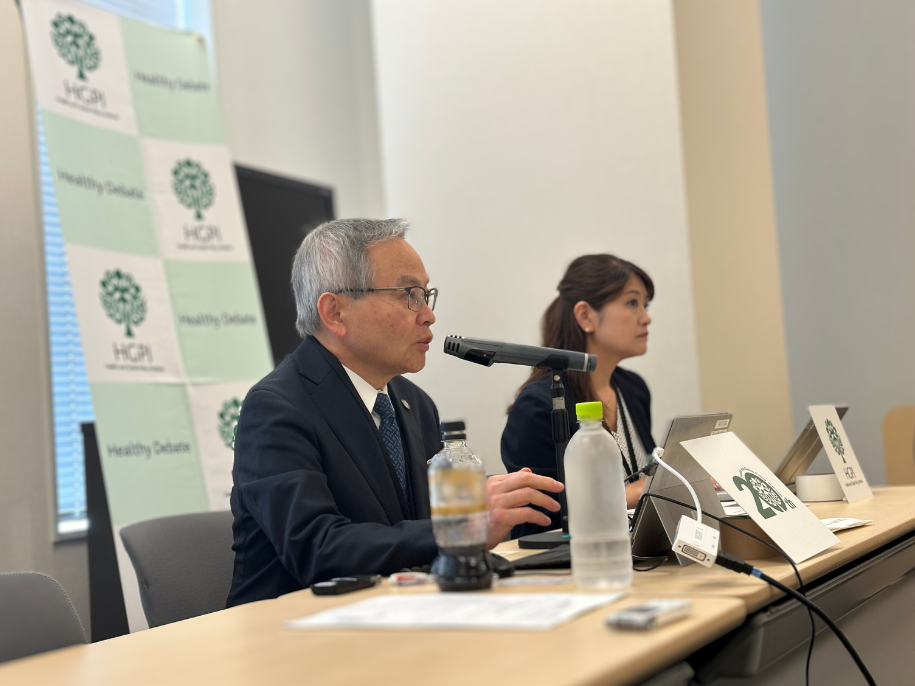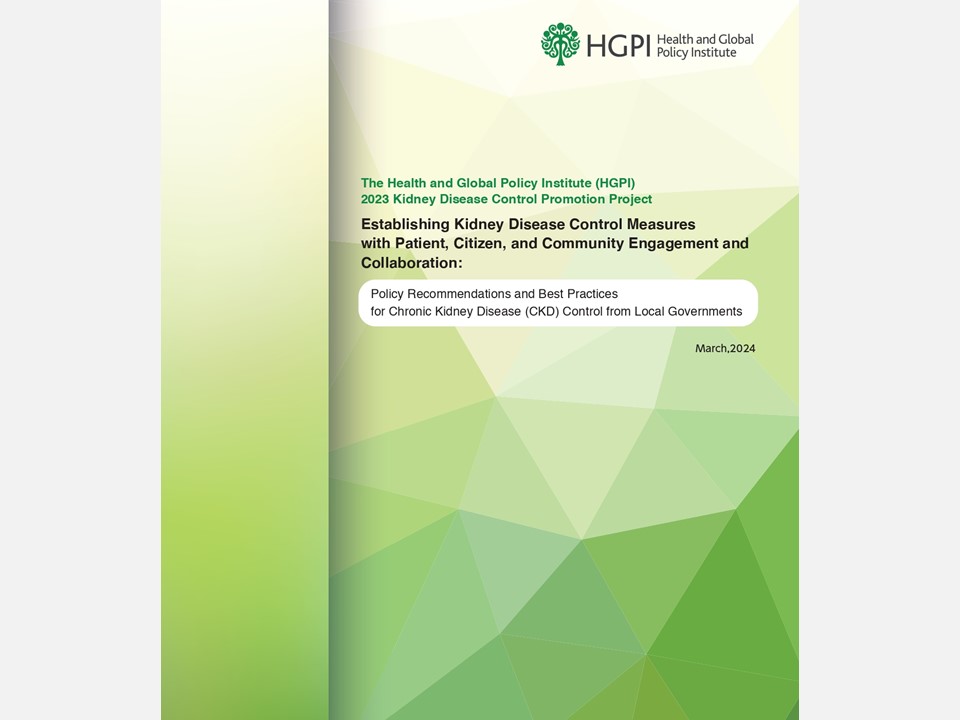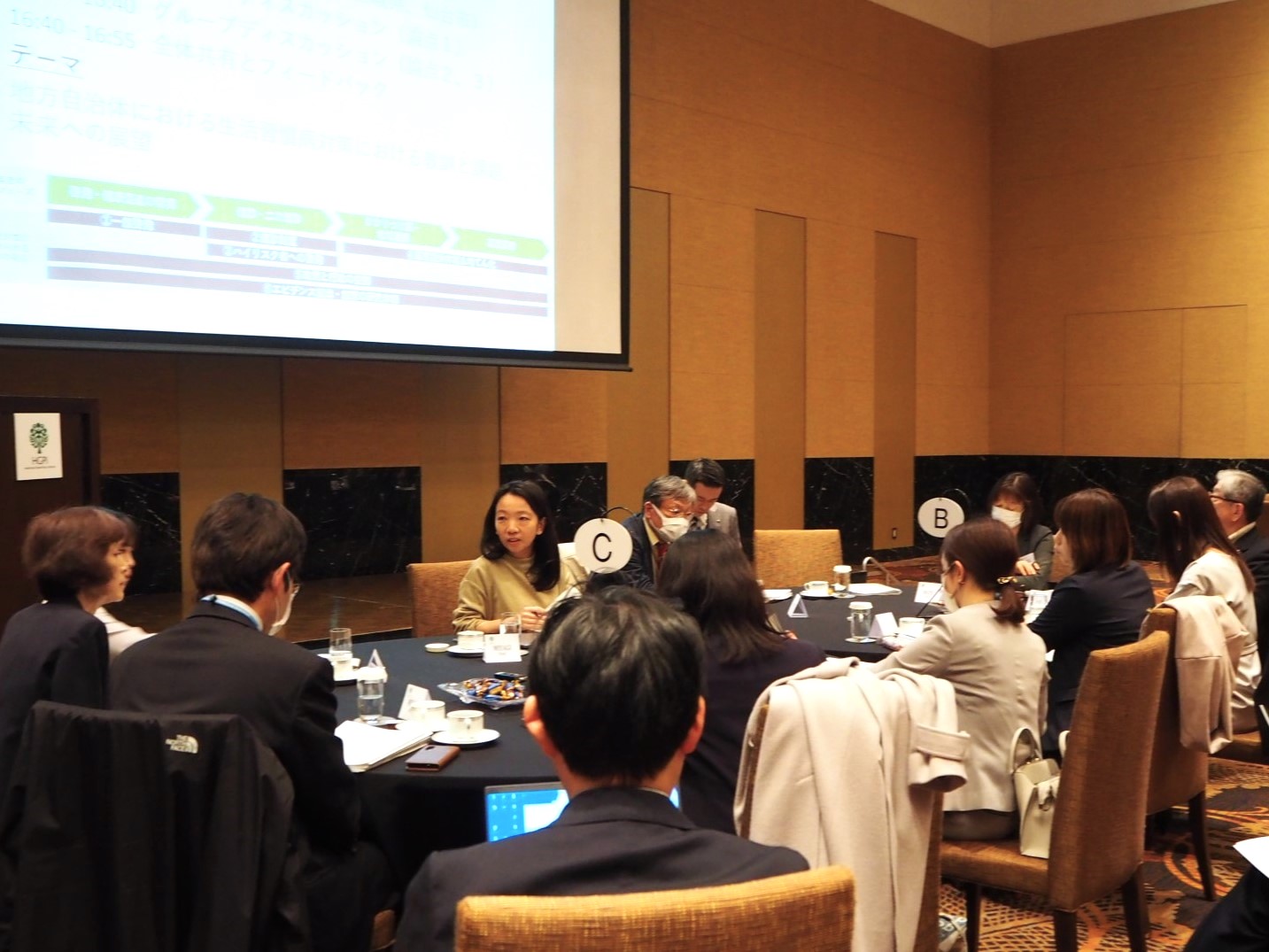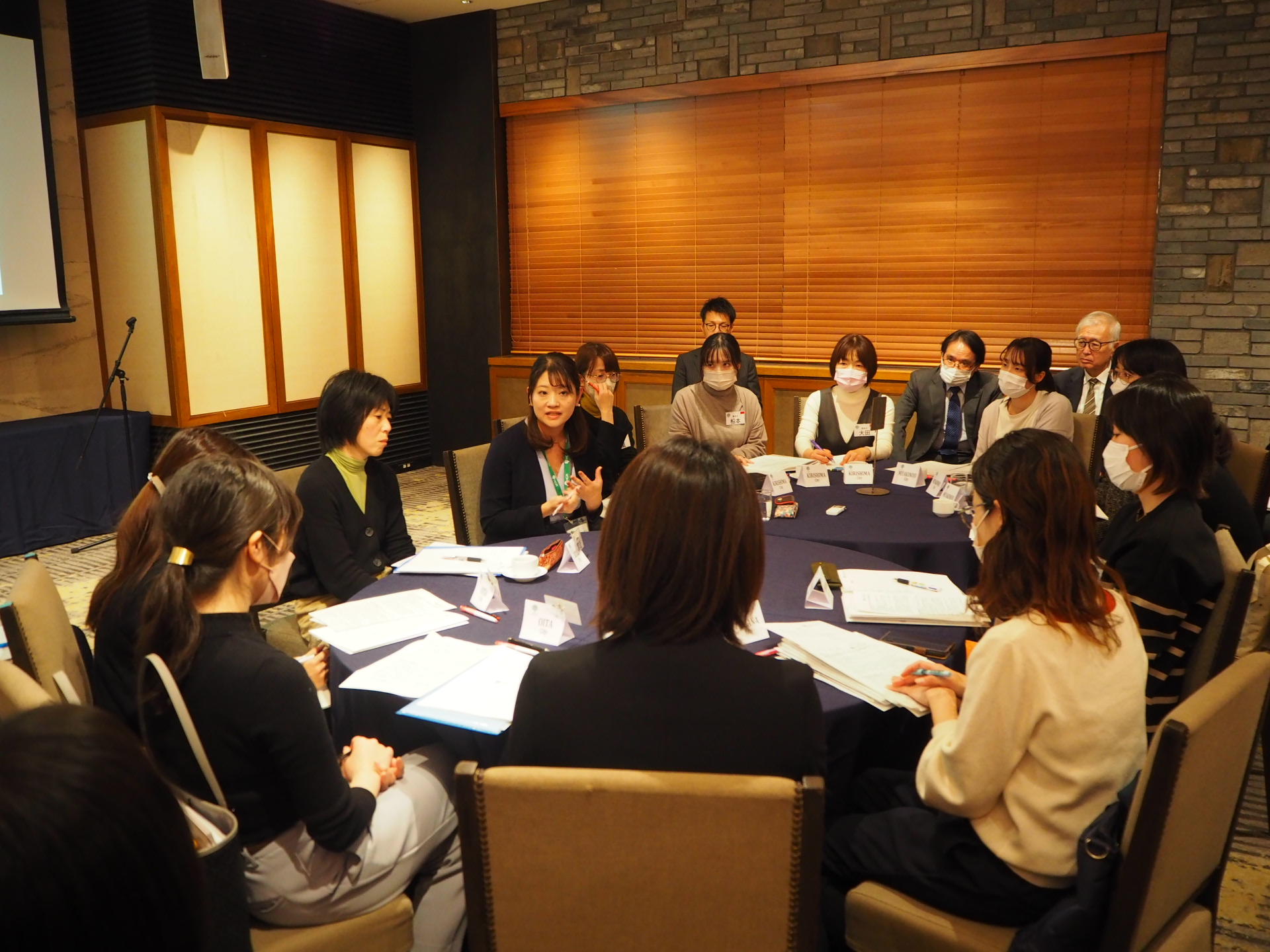[HGPI Policy Column] (No.55) From the Kidney Disease Control Promotion Project “What Is Required from a Patient Perspective for Continuity of Treatment for Chronic Kidney Disease (CKD): Dietary Therapy Edition”
date : 3/13/2025
Tags: HGPI Policy Column, Kidney Disease, NCDs
![[HGPI Policy Column] (No.55) From the Kidney Disease Control Promotion Project “What Is Required from a Patient Perspective for Continuity of Treatment for Chronic Kidney Disease (CKD): Dietary Therapy Edition”](https://hgpi.org/en/wp-content/uploads/sites/2/HGPI_20250310_Column_CKD_nutrition_eyecatch.jpg)
<POINTS>
- In dietary therapy for chronic kidney disease (CKD), appropriate energy intake and sodium restriction are fundamental . Depending on the individual’s condition, additional restrictions such as protein and potassium may be necessary. These dietary regulations are not only a form of treatment but also an essential factor influencing the patient’s quality of life.
- Since the 2020 revision of the medical service fee schedule, the framework for outpatient nutritional dietary guidance has been enhanced, improving overall accessibility.
- However, from the patient’s perspective, there are still obstacles to accessing outpatient nutritional dietary guidance. Moving forward, it is essential to build a support system that is more accessible and attentive to patients’ needs and perspectives.
Dietary Therapy in the Treatment of Chronic Kidney Disease (CKD)
In the treatment of chronic kidney disease (CKD), in addition to pharmacotherapy, dietary therapy may be required as it affects daily life. Through interviews conducted with multiple individuals living with CKD as part of our project, dietary therapy was often cited as one of the major challenges. This is because it must begin from the very day a physician explains its necessity and requires personal commitment. This column will introduce the system of nutritional dietary guidance and discuss what is required from a patient perspective.
Dietary Therapy for CKD
In CKD treatment, dietary therapy may be required if a physician determines it necessary based on CKD severity classification, age, test results, and physical condition. This section describes dietary therapy for CKD stages 1 to 5 before transitioning to dialysis therapy. The fundamental principles of dietary therapy include appropriate energy intake (25-35 kcal/kgBW/day) and sodium restriction (between 3g/day and 6g/day). However, depending on individual health conditions, additional restrictions on protein or potassium intake may also be necessary. It is important to note that dietary therapy varies from one person to another.
If a patient’s pre-treatment diet is composed of excessive protein or sodium intake, a significant dietary adjustment may be required and prescribed, which some individuals may find burdensome. CKD dietary therapy is not only a part of treatment but also an integral aspect of daily life. Since eating can be a source of enjoyment and fulfillment, it is essential to recognize dietary therapy as part of an individual’s lifestyle.
For further details on CKD dietary therapy, references such as “Dietary recommendations for chronic kidney disease, 2014” (Japanese Society of Nephrology, Tokyo Igaku-sha) and “Dietary Reference Intakes for Japanese (2025)” (Ministry of Health, Labour and Welfare) may be useful.
Nutritional Dietary Guidance in Medical Institutions (Outpatient)
In nutritional dietary guidance at health institutions authorized to treat patients with health insurance coverage, registered dietitians provide guidance based on physician instructions using specific meal plans. When the registered dietitian of the insured medical institution provides nutritional dietary guidance, Outpatient Nutritional Dietary Guidance Fee 1 (hereinafter referred to as Guidance Fee 1) is calculated. If a registered dietitian from another medical institution provides the guidance, Outpatient Nutritional Dietary Guidance Fee 2 (hereinafter referred to as Guidance Fee 2) is applied. The fee structure is as follows:
- Guidance Fee 1:
- Initial session: 260 points for face-to-face, 235 points for telecommunication
- Subsequent sessions: 200 points for face-to-face, 180 points for telecommunication
- Guidance Fee 2:
- Initial session: 250 points for face-to-face, 225 points for telecommunication
- Subsequent sessions: 190 points for face-to-face, 170 points for telecommunication
The initial nutritional dietary guidance session can be claimed twice per month, while subsequent months allow one claim per month. Outpatient nutritional dietary guidance can be billed even on days without a physician consultation.
The 2020 revision of medical service fees introduced Guidance Fee 2, making nutritional dietary guidance more accessible in clinics by allowing services from dietitians affiliated with nutrition care stations or other health institutions authorized to treat patients with health insurance coverage, including online guidance. Furthermore, the 2024 revision allowed the calculation of telecommunication-based nutritional dietary guidance fees from the initial session, thereby facilitating outpatient dietary guidance.
Outpatient Nutritional Dietary Guidance for CKD
Other diseases associated with CKD qualify for outpatient nutritional dietary guidance. The fees for outpatient nutritional dietary guidance generally correspond to those for inpatient guidance. Diagnosed conditions such as CKD and nephrotic syndrome are included, with considerations for protein control and sodium restriction. Additionally, sodium reduction guidance for hypertension is covered in outpatient settings.
Patient Perspectives on Dietary Therapy for CKD
Through interviews with individuals living with CKD, concerns such as the difficulty in understanding dietary therapy and knowing where to go. Some patients stated that “CKD dietary therapy is difficult, and I can’t understand it with just the doctor’s explanation.” “I want to ask about my diet but don’t know where to go.” “I can’t find a place where I can receive nutritional guidance on my own.” were raised. Since few clinics have a full-time registered dietitian, there are barriers for patients to access outpatient nutritional dietary guidance. Establishing a system where dietary guidance is accessible at any clinic treating CKD is expected.
Even if a physician determines that a patient does not require nutritional dietary guidance and can manage independently, patients and their families may still have dietary concerns. It is important to consider that, for individuals living with CKD, dietary therapy is not just part of treatment but also part of their daily life. Healthcare providers should recognize that patients may wish to discuss even minor dietary concerns and respond accordingly.
References
- Japanese Society of Nephrology. “Evidence-based CKD Clinical Practice Guidelines 2023.” Tokyo Igaku-sha. 2023.
- Japanese Society of Nephrology, “Dietary recommendations for chronic kidney disease, 2014”, Tokyo Igaku-sha. 2014.
- Ministry of Health, Labour and Welfare, “Dietary Reference Intakes for Japanese (2025)”, https://www.mhlw.go.jp/stf/newpage_44138.html (Accessed: March 4, 2025)
- Ministry of Health, Labour and Welfare, Medical Service Fee Schedule Table 1, https://www.mhlw.go.jp/content/12404000/000907834.pdf (Accessed: March 4, 2025)
Authors
Asako Okawa (Associate, Health and Global Policy Institute)
Eri Yoshimura (Senior Manager, Health and Global Policy Institute)
Top Research & Recommendations Posts
- [Policy Recommendations] The Path to a Sustainable Healthcare System: Three Key Objectives for Public Deliberation (January 22, 2026)
- [Research Report] The 2025 Public Opinion Survey on Healthcare in Japan (March 17, 2025)
- [Research Report] Perceptions, Knowledge, Actions and Perspectives of Healthcare Organizations in Japan in Relation to Climate Change and Health: A Cross-Sectional Study (November 13, 2025)
- [Policy Recommendations] Reshaping Japan’s Immunization Policy for Life Course Coverage and Vaccine Equity: Challenges and Prospects for an Era of Prevention and Health Promotion (April 25, 2025)
- [Research Report] The 2023 Public Opinion Survey on Satisfaction in Healthcare in Japan and Healthcare Applications of Generative AI (January 11, 2024)
- [Research Report] AMR Policy Update #4: Cancer Care and AMR (Part 1)
- [Public Comment Submission] “Assessment Report on Climate Change Impacts in Japan (Draft Overview)” (December 24, 2025)
- [Policy Recommendations] Developing a National Health and Climate Strategy for Japan (June 26, 2024)
- [Research Report] The Public Opinion Survey on Child-Rearing in Modern Japan (Final Report) (March 4, 2022)
- [Research Report] Survey of Japanese Physicians Regarding Climate Change and Health (December 3, 2023)
Featured Posts
-
2026-01-09
[Registration Open] (Hybrid Format) Dementia Project FY2025 Initiative Concluding Symposium “The Future of Dementia Policy Surrounding Families and Others Who Care for People with Dementia” (March 9, 2026)
![[Registration Open] (Hybrid Format) Dementia Project FY2025 Initiative Concluding Symposium “The Future of Dementia Policy Surrounding Families and Others Who Care for People with Dementia” (March 9, 2026)](https://hgpi.org/en/wp-content/uploads/sites/2/dementia-20260309-top.png)
-
2026-02-05
[Registration Open] (Webinar) The 141st HGPI Seminar “Current Status and Future Prospects of Korea’s Obesity Policy: Voices of People with Lived Experience in Policy Promotion” (March 3, 2026)
![[Registration Open] (Webinar) The 141st HGPI Seminar “Current Status and Future Prospects of Korea’s Obesity Policy: Voices of People with Lived Experience in Policy Promotion” (March 3, 2026)](https://hgpi.org/en/wp-content/uploads/sites/2/hs141-top-1.png)
-
2026-02-06
[Research Report] AMR Policy Update #5: Cancer Care and AMR (Part 2)
![[Research Report] AMR Policy Update #5: Cancer Care and AMR (Part 2)](https://hgpi.org/en/wp-content/uploads/sites/2/HGPI_20260204_AMR-Policy-Update-5.png)




